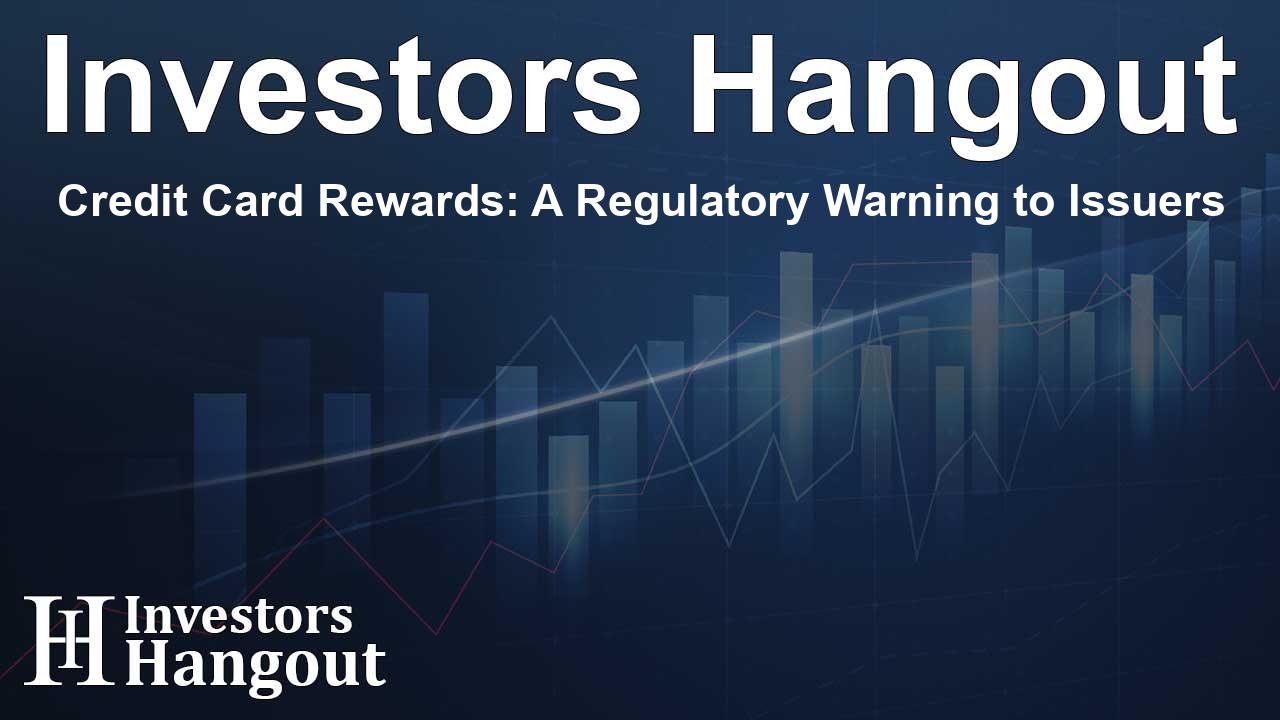Credit Card Rewards: A Regulatory Warning to Issuers

Understanding the CFPB's Warning on Credit Card Rewards
The U.S. Consumer Financial Protection Bureau (CFPB) has raised significant concerns about the practices of credit card companies regarding the management of rewards. The agency has indicated that practices such as devaluing or canceling rewards points, cashback, or miles earned by cardholders could potentially violate consumer protection laws.
Legal Implications for Credit Card Issuers
In a recent policy circular, the CFPB outlined that any unfair or deceptive practices related to reward systems can invoke legal repercussions for credit card issuers. This means that if a card issuer reduces the value of rewards through hidden terms or errors in processing, they might be held accountable.
Consumer Trust and Rewards Programs
As of the latest statistics, around 75% of all general-purpose credit cards available are rewards cards. These cards have gained immense popularity due to the incentives that come with them, influencing consumers' choices in applying for and utilizing these financial products.
The Impact of Regulatory Changes
The CFPB issues these circulars to ensure compliance across various regulatory bodies, including state attorneys general and local financial regulators. This approach helps safeguard consumer rights and maintain transparency within the credit card industry.
Future of CFPB under New Leadership
Looking ahead, there seems to be a strong focus on the CFPB's governance. As the new administration may bring shifts in policy, the future leadership chose by the President-elect will greatly affect how these regulations are enforced. Business figures, including Elon Musk, have suggested significant changes, even discussing the potential abolition of the CFPB.
Context of Regulatory Environment
This regulatory landscape is further complicated by calls from lawmakers for a moratorium on new regulations until the new administration takes effect. Nonetheless, the CFPB remains steadfast in its commitment to enforcing consumer protection laws regardless of the changing political tides.
As the environment around credit card usage and rewards shifts, consumers must stay informed about their rights and the actions being taken by regulatory bodies to protect them. With the watchdog keeping an eye on unfair practices, there is hope for a more equitable reward system in the future.
Frequently Asked Questions
What is the CFPB's role regarding credit card rewards?
The CFPB oversees consumer financial protection and ensures that credit card issuers adhere to fair practices, including how rewards are managed.
Can credit card companies legally devalue rewards?
While credit card companies can change their rewards programs, devaluing rewards without clear communication or justification may lead to legal challenges.
How can I protect my rewards as a consumer?
Staying informed about the terms of your rewards program and keeping abreast of any changes from your credit card issuer is crucial for protecting your earned rewards.
What should I do if my rewards are devalued?
If you believe your rewards have been unfairly devalued, you should first contact your credit card issuer. If unsatisfied, consider reaching out to the CFPB for further assistance.
Why are rewards cards so popular among consumers?
Rewards cards provide various perks, such as cash back, travel miles, and other incentives, which attract consumers looking to maximize their spending benefits.
About Investors Hangout
Investors Hangout is a leading online stock forum for financial discussion and learning, offering a wide range of free tools and resources. It draws in traders of all levels, who exchange market knowledge, investigate trading tactics, and keep an eye on industry developments in real time. Featuring financial articles, stock message boards, quotes, charts, company profiles, and live news updates. Through cooperative learning and a wealth of informational resources, it helps users from novices creating their first portfolios to experts honing their techniques. Join Investors Hangout today: https://investorshangout.com/
Disclaimer: The content of this article is solely for general informational purposes only; it does not represent legal, financial, or investment advice. Investors Hangout does not offer financial advice; the author is not a licensed financial advisor. Consult a qualified advisor before making any financial or investment decisions based on this article. The author's interpretation of publicly available data shapes the opinions presented here; as a result, they should not be taken as advice to purchase, sell, or hold any securities mentioned or any other investments. The author does not guarantee the accuracy, completeness, or timeliness of any material, providing it "as is." Information and market conditions may change; past performance is not indicative of future outcomes. If any of the material offered here is inaccurate, please contact us for corrections.